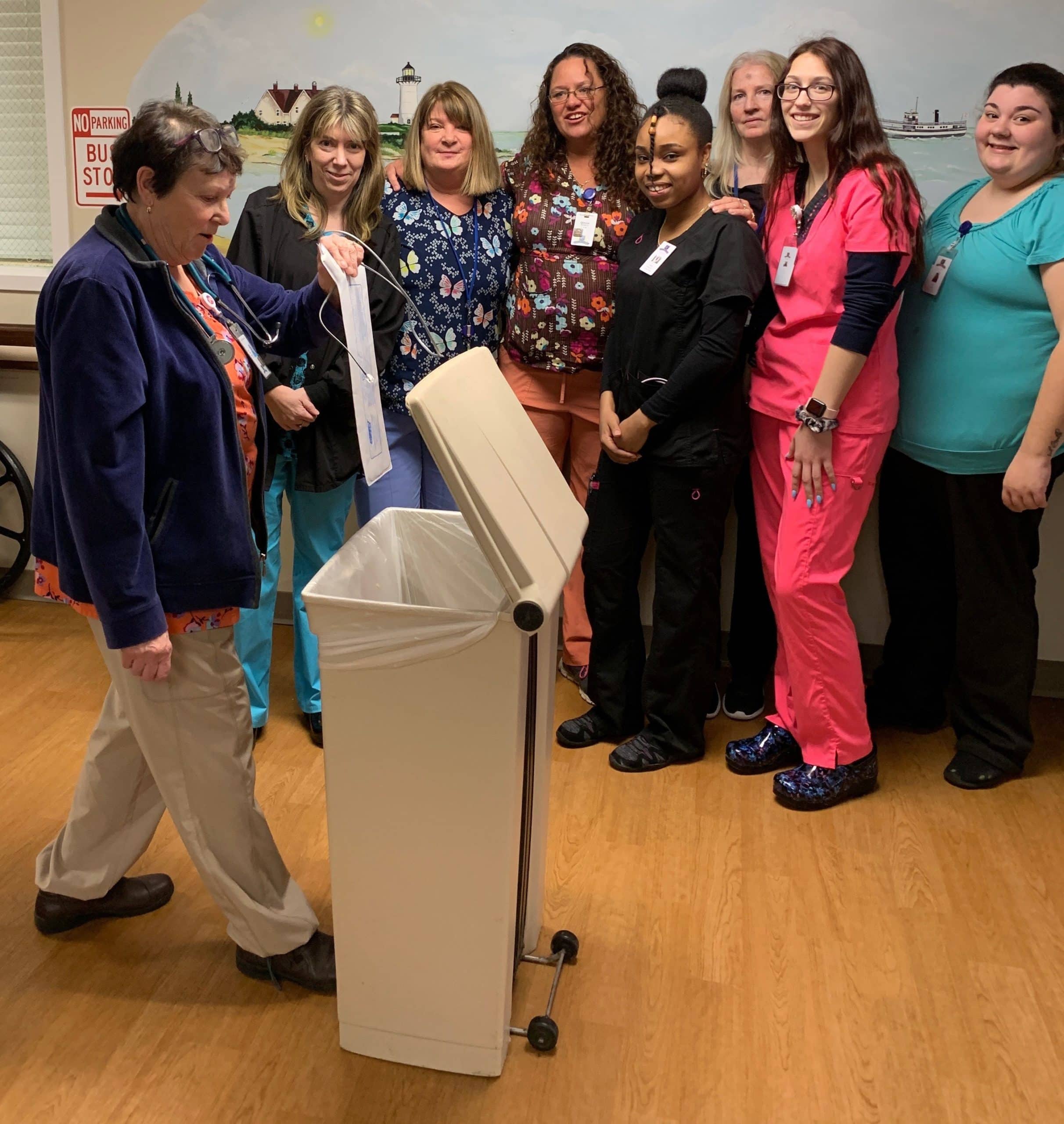![]() Royal Falmouth a 121-bed facility located in Falmouth, Massachusetts offers long-term care, short-term rehabilitation and memory care for residents with dementia. Within the facility, 23% of residents were using alarms, and in some cases, residents were double alarmed utilizing bed, chair or personal safety alarms to prevent falls or other injuries.
Royal Falmouth a 121-bed facility located in Falmouth, Massachusetts offers long-term care, short-term rehabilitation and memory care for residents with dementia. Within the facility, 23% of residents were using alarms, and in some cases, residents were double alarmed utilizing bed, chair or personal safety alarms to prevent falls or other injuries.
Recognizing that alarms not only create a disruptive environment, often agitating residents, and but are also not proven to prevent falls, a team consisting of the facility’s Regional Nurse Consultant, Director of Nursing, Assistant Director of Nursing, Administrator, Certified Nursing Assistant, Unit Manager and the Staff Development Coordinator worked closely to address the alarm issue. The conducted research and provided documentation to substantiate that alarms do not prevent falls. They developed a Quality Assurance and Performance Improvement (QAPI) plan with a goal of eliminating alarm use at Royal Falmouth within six months and convened a No-Alarm Committee (Performance Improvement Plan (PIP) Team) who worked together to outline a plan to reach their target. They referred to research and provided family education, calling every family individually when reducing an alarm. The team also leveraged audit forms related to falls – if a resident had been consistent and had not experienced a fall, they were targeted for alarm discontinuation.
The team implemented the alarm reduction project in September and within two months achieved significant improvement. The breakdown per facility floor had the following percentage of residents on an alarm in September and in November:
- First floor – 4% residents (Sept.) to 0% (Nov.)
- Second floor – 23% residents (Sept.) to 5% (Nov.)
- Third floor – 35% residents (Sept.) to 19.4% (Nov.)
Through this QAPI project, the team learned that continuous staff education on alternative strategies in place of an alarm is key to sustain this progress toward the goal of an alarm-free facility. Likewise, small continuing education for families that are resistant is also necessary. Additionally, the standard training through paper and discussion around compliance alone is ineffective; instead training that includes statistics, and evidence-based studies are more effective to obtain buy-in.
The team found it was important to identify the staff members who seemed to be reluctant for change. They spent more quality time with this group and reassured their reluctance through empathy and confidence by actively listening to concerns and validating their concerns, but also educating them at the same time. Through this process, several patients who were on alarms were not falling, which supported the initiative to remove them, as they were unnecessary. Since significantly reducing alarms at Royal Falmouth, the residents are enjoying a more conducive and pleasant environment and the team looks forward to continuing their progress to eliminate all alarms.


